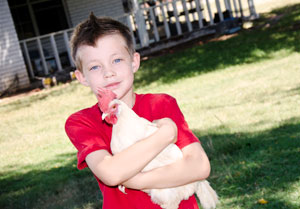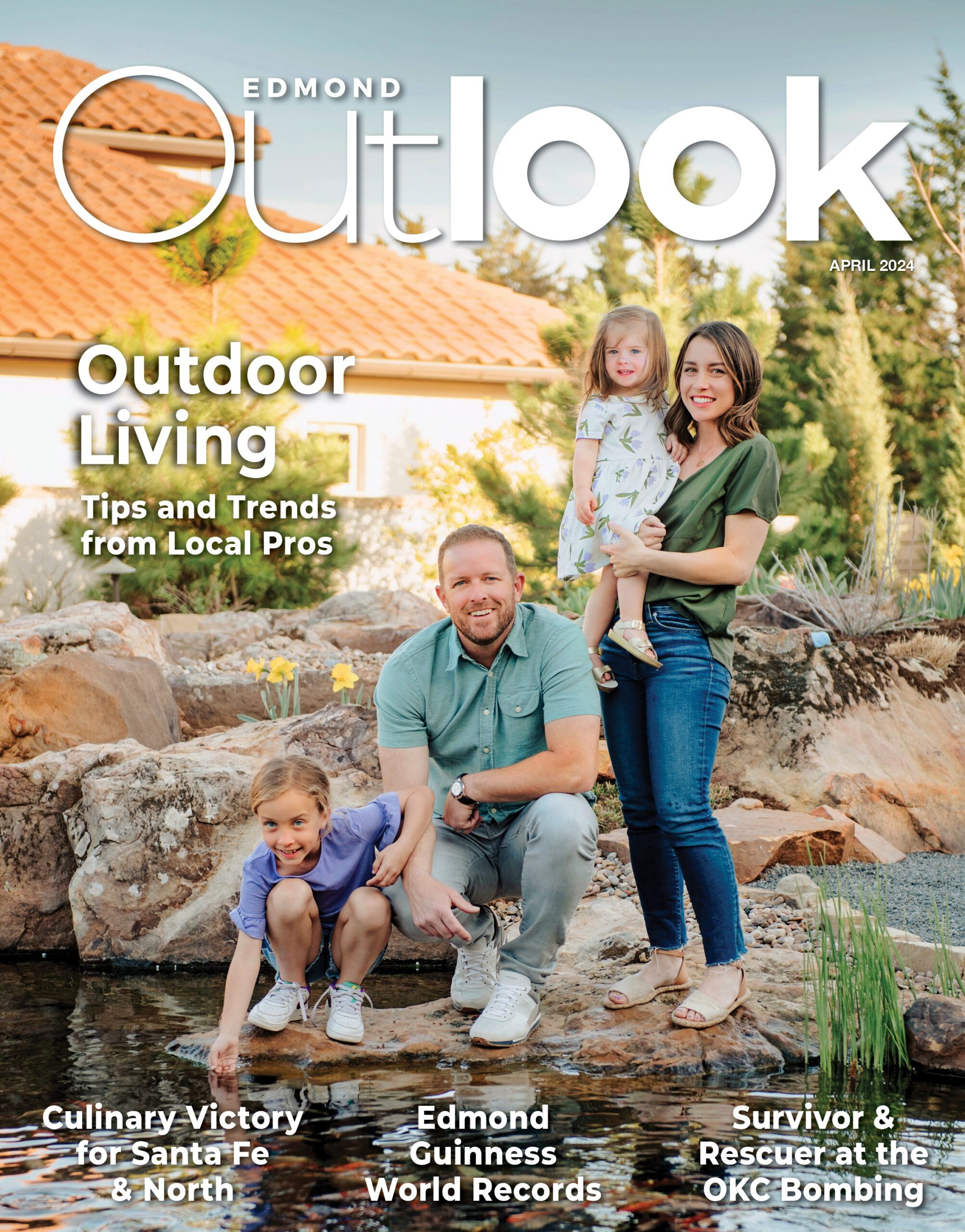Down on the Farm
 Jennifer Webster’s lifelong plans did not include running a farm. Webster grew up a country girl but her plan included leaving the country life behind for a corporate position in a big city.
Jennifer Webster’s lifelong plans did not include running a farm. Webster grew up a country girl but her plan included leaving the country life behind for a corporate position in a big city.
But, such as life, circumstances change and now the Edmond resident finds herself mother to three children, six cows, 37 goats and dozens of chickens.
Webster and her husband, Chris, own Providence Farms in north Edmond. The couple homeschool their three children, Ella, Kolten and Justice. On top of that, Jennifer and Chris both hold down full-time jobs to support the family and farm venture.
Webster spends her nights working for the Edmond Police Department as a jailer. She still has dreams of becoming an officer, but as she puts it, with three children and a farm, her life has taken a little bit of a twist.
“The farm is where I feel called to be right now,” she said. “Our farm is named Providence for a reason. We really felt like God led us here. If it hadn’t been for God providing and doing some awesome things, we might not have made it.”
The Websters pride themselves on offering a natural experience at their 25-acre range. The cows and goats are all grass-fed and the chickens receive nongenetically modified grass feed from Ohio and Washington. The last two seasons’ droughts could have done Providence in, but faith, hope and a whole lot of love have kept it going.
What the Websters are providing their kids is a chance at sustainability. The couple lives by the premise that food shouldn’t come from a box. All three kids are involved in the upkeep of the farm, even naming the animals. The animals may provide the family with nutrient-dense food, but they’re also an extension of the household.
“We try to do everything as naturally as possible,” Webster said. “I really believe that a lot of the reason people are sick, struggling and unhealthy is because the foods they’re eating aren’t giving their body what they need. When your body doesn’t get what it needs, it reacts. Our vision is to continue to hone what we’re doing here with the grass-fed dairy goats and dairy cows.”
The drought has put a financial burden on farmers all over the country, the Websters included. Grain that was once readily available is now harder to come by. The family is currently feeding alfalfa hay to its stock because there’s no grass. Typically, the stock would have access to green grass through October. The hay comes at a cost of almost $30,000 just to get through the winter.
“It’s a lot easier to be conventional when it comes to farming — just do what has been done the last 50 years — than it is to make a stand and go back to the older ways of farming,” Webster said. “One hundred years ago, farmers didn’t use pesticides or chemicals. They didn’t have the option and they couldn’t have afforded it even if they did.”
Webster points to small farming practices as a way for the country to get back to healthy. The family invites the public to come out and meet the animals. For them, it is about teaching people that food-sourcing animals shouldn’t be an afterthought.
There’s Squeakles the goat, Big Bess and Little Bess, the cows, and Maggie the hen. They’re all a part of the Webster family – human or otherwise. And they’re all part of a growing sustainability movement that got its start back in 1954 with the publication of “Living the Good Life” by Helen and Scott Nearing. Today, its following has grown internationally. The couple finds inspiration and motivation from Joel Salatin, a well-known author and holistic farmer from Virginia.
“(Joel) is a big fan of ours,” Webster said. “He’s a pioneer in the grass-fed movement. He’s paved the way for others and has written a lot of good books on the subject.” The movement is evident in national food store chains like Whole Foods and Trader Joe’s and people growing gardens in their backyards.
While the Websters hope to teach others about the advantages of sustainable living, Jennifer is grateful to share the experience with her children. “My kids have a love for animals, a respect for nature and a strong work ethic,” she said. “They know that these animals depend on them, and we depend on the animals to give us good milk and provide for us. It’s a relationship. It’s taught them a lot – they see business ethics, moral ethics and all those other things.”
The Websters see the farm as a means to educate and make their community better. The family is always willing to discuss the benefits of sustainability for anyone interested, and hopes that Providence Farms is just the beginning of the return to a true organic period in Oklahoma agriculture.
“We never want to force a sustainable lifestyle on people,” Webster said. “We want people to come to us because they’re interested. We’re here to answer questions.” For more information visit www.providencefarmsok.com or call 359-8359 or 240-2626.




